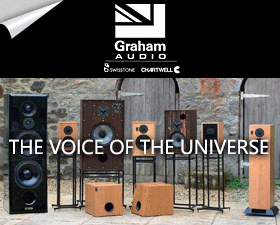For the last few days, I have been attending various live orchestral and band performances. Sitting listening to the wonderful 'live' music, it occurred to me that we need to consider more strongly the type of music that we are trying to portray in our systems; which leads to the importance of the type of speaker that we need to reproduce it.
On the large band pieces with brass and wind instruments, the large multi-driver speaker that can move large amounts of air would seem to be the way to go, IMHO...read also the horn type speaker and the large Scaena type speaker with plenty of bass wallop. OTOH, listening to the orchestral pieces with strings, the smaller more defined speaker, like my GH's or the Magico's may be a better choice. I am beginning to believe that there is no speaker that can really be expected to do both mediums perfectly... The BIG band piece and the small orchestral. IMO, the smaller speakers can never hope to portray a true rendition of a kettle drum, as an example, OTOH, the BIG speaker most likely cannot really deliver the 'precision' ( for want of a better word) of the monitor type speaker. (which is needed for the string reproduction and precise imaging on the stage of the smaller instruments). All of this has to be compounded with the size and shape of the listening room.....a large room being of paramount importance to try and reproduce the scale and energy of the hall. A small room for the intimacy of the surroundings and of the acute ability to hear the smallest detail in the strings.
At the end of the day, I guess we pick our poisons..
What choice have you made? What compromise are you living with?
On the large band pieces with brass and wind instruments, the large multi-driver speaker that can move large amounts of air would seem to be the way to go, IMHO...read also the horn type speaker and the large Scaena type speaker with plenty of bass wallop. OTOH, listening to the orchestral pieces with strings, the smaller more defined speaker, like my GH's or the Magico's may be a better choice. I am beginning to believe that there is no speaker that can really be expected to do both mediums perfectly... The BIG band piece and the small orchestral. IMO, the smaller speakers can never hope to portray a true rendition of a kettle drum, as an example, OTOH, the BIG speaker most likely cannot really deliver the 'precision' ( for want of a better word) of the monitor type speaker. (which is needed for the string reproduction and precise imaging on the stage of the smaller instruments). All of this has to be compounded with the size and shape of the listening room.....a large room being of paramount importance to try and reproduce the scale and energy of the hall. A small room for the intimacy of the surroundings and of the acute ability to hear the smallest detail in the strings.
At the end of the day, I guess we pick our poisons..
What choice have you made? What compromise are you living with?

















